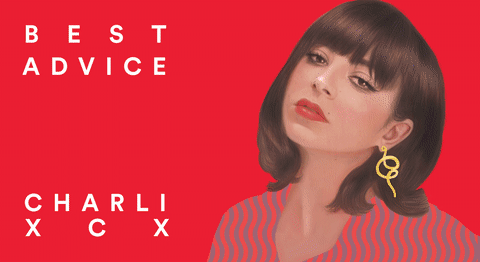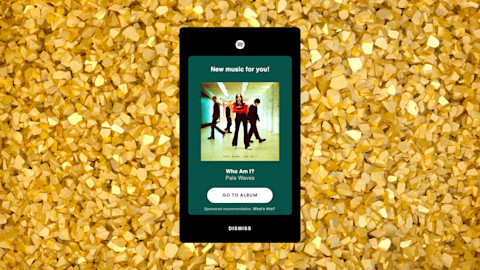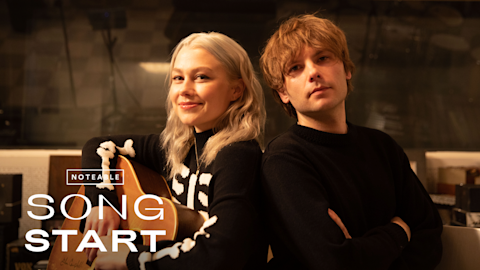The seasoned boundary-pusher has carved out a niche at the intersection of punk, podcasting, and parenting.
As frontman for Fucked Up, Damian Abraham is at once the band’s most visible ambassador and its perennial outsider. Over the past 15 years, the dramatic evolution of the Toronto band’s music from caustic hardcore into experimental art-rock has has been fueled by an aesthetic tug-of-war, between Abraham’s unwavering punk evangelism and the band’s exploratory, genre-agnostic ethos. And while Abraham’s vocal-cord-shredding roar is as feral as ever on the band’s epic 2018 release, Dose Your Dreams, this time he’s shouting to be heard amid acid-house grooves, industrial beats, and a Broadway-sized cast of guest singers that includes Dinosaur Jr.’s J Mascis, indie-electro chanteuse Miya Folick, and art-pop enigma Mary Margaret O’Hara.
But where most musicians in his position might channel their surplus artistic impulses into a solo album, Abraham has sought different outlets to indulge the punk fetishism his band no longer prioritizes. Back in 2011, he became the host of a reboot of The Wedge, the beloved alternative-music video program that aired on MuchMusic (a.k.a. Canada’s MTV). And when that experiment came to an end in 2014, Abraham found a new forum for music-nerd talk unbound by time-slot limitations and network-producer oversight.
On his weekly podcast, Turned Out a Punk, Abraham has interviewed all manner of artists and celebrities—from Sonic Youth’s Thurston Moore and Rancid’s Lars Frederiksen to Jack Black and the late Anthony Bourdain—all of whom had their life changed by punk rock and credit it with shaping their career path. Abraham has become so enamored with the medium, he’s launched a spin-off podcast, Oil & Flowers, to indulge another obsession of his: cannabis culture. We spoke to Abraham about how he balances his Fucked Up duties with his increasingly active podcasting career—and, oh yeah, raising three kids.
Spotify for Artists: You open every Turned Out a Punk interview with the same question: “How did you get into punk?” Let’s flip that: How did you get into podcasting?
Damian Abraham: I think it came from the fact that, in punk, you’re told to create your own culture. If there’s something that isn’t reflecting what you want to see out there, make it. Once I wrapped up my stint at MuchMusic, and I realized I wasn’t going to be able to change the system from within, I was going to have to carve my own little niche within it. That’s when I thought: You know what, let’s do a podcast—that’s a lot more manageable than trying to convince MuchMusic to start playing the Cro-Mags!
Is it a coincidence that your forays into media came at a time when Fucked Up was becoming a more musically ambitious entity?
The podcast is almost like a place I can retreat to. As Fucked Up became more and more serious, and actually became a job, it was less about, “Let’s just go out there and have fun,” and more about, “These are the things you need to do: You need to go out there and tour for a certain number of weeks per year, you need to do this and that.” And so Turned Out a Punk was my way of keeping in touch with what I found super-fun about music—and punk specifically—which is the discovery, the constant unearthing of new layers of information.
When you were hired at MuchMusic, you said it was partly a practical move—you had a family to support, and this gig was a way to help pay the bills when you weren’t on tour. What’s been your experience with monetizing your podcast?
I’ve been able to monetize it so I’m not losing money on it. It certainly isn’t as monetized as it could be—I don’t have a Patreon [membership platform] or any of that stuff set up. I listen to a lot of podcasts—mainly wrestling podcasts—and it just seems like there’s so much repetition in the way people advertise on them, and I’ve always wanted to find a way to make this podcast not like everyone else’s in that way. Vans will pay me to do live podcasts now, and normally it’s with someone pretty cool, so that’s been a nice relationship to establish.
Could you envision becoming a career podcaster?
I’d love that. If you had asked me this question at this time last year, I’d say, “No, I don’t think so—it is what it is.” But I’ve got these friends, John [Pollock] and Wai [Ting], who’ve built up their POST Wrestling empire in the past year, and now I’m looking at what they’re doing, and it’s been incredibly inspiring. These two guys who do a wrestling-review podcast are now doing it for their full-time jobs. And to watch them build something they have complete control over has definitely caused me to rethink the way I’ve oriented my life and where this podcast sits in that. It’s hard, though: I’m potentially competing against myself with everything I’m putting out there! There’s only so much content someone can put out before people hit that content saturation point. It’s a delicate balance. That’s why I’ve always tried to keep the band and the podcast as separate as possible—I want to make sure these things aren’t competing with each other for the same people’s attention.
Your podcast is about how punk instills a value system that people carry with them throughout their lives. You’re a father of three, and parenting often means engaging with corporate brands and capitalism and team sports—all these things your younger self might’ve railed against. At the same time, you don’t want to deny your kids the toys and experiences their friends at school are all talking about. How are you managing that?
It’s such a mind-fuck being a parent, because it’s not just about being the best possible parent you can be, it’s also dealing with everyone else around you—family, friends, co-workers—and these ingrained expectations. It’s funny: At the end of the day, all a kid really needs is someone to love them and give them undivided attention. So is it worth it for me to bust my ass to try to give them all this material shit, when all they really need is more of my time? But yet here I am, busting my ass trying to give them more material shit! It’s probably always been bad, but the social-media envy window that we have now—where we’re seeing how other people are raising their kids and what they’re able to give them—it weighs on you as a parent. How could it not? It’s weird to be part of the vanguard… and then become, like, a soccer dad. I was always like, “When I have kids, I’m going to say ‘fuck no’ to all that soccer stuff.” Now, it’s like, “That would be a horrible thing for me to do as a parent!” If my kid is like, “Hey, I really want to play soccer,” am I really going to tell him, “No, organized sports are bullshit, don’t fuck with that stuff—listen to this Void record instead”?
—Stuart Berman
*This interview has been edited for clarity.
Popular Stories
video
How Julia Wolf Made It




